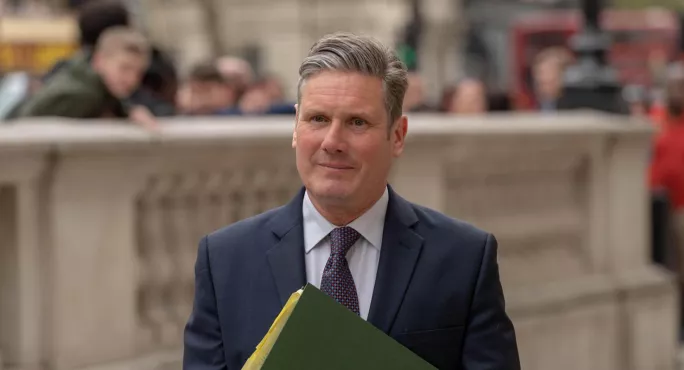Taxing private schools: the truth behind the bluster

Sir Keir Starmer’s announcement that he would - if elected - remove charitable status from independent schools is a resurrection of a policy that has been comprehensively rejected by the electorate before.
But no matter how often the British public seems unconcerned about which schools our politicians attended, and openly opposes attacks on the independent school sector, Labour seem incapable of leaving this issue alone.
Whether it will ever come to pass remains a matter unknown until future elections but the reality is if it did then the proposal to add VAT to school fees, and to remove charitable tax reliefs, would hit many hard, and some, smaller, independent schools would go out of business.
Removing charitable status would force independent school closures
Of course, schools such as Eton and Harrow would not close because of this policy, but those schools operating on tiny margins, often in sparsely populated rural areas, which do not charge the £40,000-plus fees of those large boarding schools, would be left extremely vulnerable.
After all, the majority of independent day schools charge between £3,000 and £5,000 per term, and the increase to the Teachers’ Pension Scheme, plus higher running costs, has pushed them to the edge of survival.
Further pressure on their incomes through the ideas outlined by Starmer would likely force many to close.
Well, some say, so what? For the many critics of independent schools, any changes to their charitable status, or added taxes levied to increase funding for state schools, is to be welcomed.
However, this argument conveniently avoids thinking through the consequences of inflicting unnecessary damage on schools and the communities they are deeply rooted in and the complex web of supply chains they operate in.
These schools employ tens of thousands of teachers and support staff; added to this, any school closures would see local businesses severely damaged, too: cleaners, the estates team and the local businesses that would go out of business if that school shuts.
One school closing down will, on a national level, pass unnoticed, but cumulatively it would have huge economic impact.
What’s more, independent schools educate approximately 600,000 children a year, saving taxpayers £3.5 billion per year. That’s probably worth thinking about, too.
The tax breaks are less than you’d imagine
Furthermore, benefits to independent schools in England and Wales are relatively modest and would certainly not make a material change to state schools if funds were seamlessly transferred from one sector to another without the Treasury getting involved (which seems unlikely).
Analysis by Altus/CVS in 2017 estimated that independent schools saved £104 million per year on business rates, which, although not inconsiderable, should be measured against the £15 billion requested by Sir Kevan Collins to support schools in recovering from the pandemic.
More importantly, absorbing additional pupils and staff into the state sector would be costly and probably unwanted by local education authorities.
The proposal also ignores VAT recovery, something schools would be eligible for if Starmer’s policies became law.
Currently, schools pay VAT on their expenditure, but they do not get the option to reclaim VAT, as businesses do.
Independent schools send this VAT straight to the Treasury. If schools have to charge parents VAT on fees, revenues to the Treasury will diminish as VAT is reclaimed by these schools when they are operating, as the Labour Party will insist, simply as businesses.
In fact, financial consultancy Baines Cutler estimates Labour’s VAT policy could cost approximately £415 million in its fifth year and will not supply additional money for spending pledges made during an election campaign.
More unwanted pressure on heads
It’s easy to see why Starmer went down this route - it seems like an easy win. The reality is far more complex, as heads of independent schools know only too well.
What’s more, at a time when education as a whole is crying out for stability, adding a sense of future uncertainty is not helpful to anyone.
Of course, headteachers in independent schools will probably feel that such policies, threatened before, are unlikely to become law.
Nevertheless, they will still need to convey to existing - and potential - parents that the sector is buoyant, and as financially accessible as it can be.
This means defending their schools robustly and challenging misinformation. This will demand real leadership.
David James is deputy head of an independent school in London
You need a Tes subscription to read this article
Subscribe now to read this article and get other subscriber-only content:
- Unlimited access to all Tes magazine content
- Exclusive subscriber-only stories
- Award-winning email newsletters
Already a subscriber? Log in
You need a subscription to read this article
Subscribe now to read this article and get other subscriber-only content, including:
- Unlimited access to all Tes magazine content
- Exclusive subscriber-only stories
- Award-winning email newsletters



